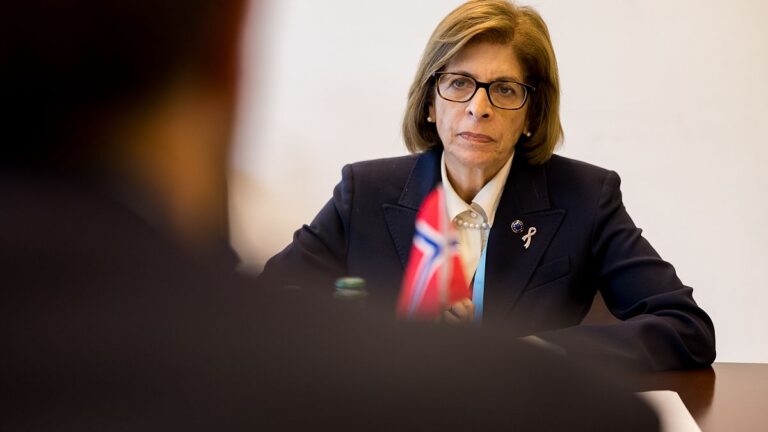The latest draft reshuffle, seen by Euronews, suggests the health ministry, DG SANTE, could lose significant powers to its agriculture-focused rival, DG AGRI.
advertisement
The European Commission’s powerful health department, DG SANTE, is expected to lose its main competence over food safety, according to a draft document seen by Euronews.
Ahead of the start of a new Commission term in November, the EU executive is considering how to allocate policy priorities among its many component directorates.
If the draft proposal, seen by Euronews, is confirmed, DG SANTE would transfer competences over pesticide approvals, animal welfare, animal and plant health, plant varieties and new genomic technologies to the European Commission’s agriculture department, DG AGRI.
SANTE will hand over other food safety issues to DG JUST, which handles justice and consumer policy.
The DG Agriculture is currently responsible for the Common Agricultural Policy (CAP), the EU’s massive agricultural subsidy system, which accounts for one third of the EU budget.
A strengthened AGRI could potentially become a fully-fledged food department that looks at the entire food system, not just production, but SANTE is likely to continue to shape, if not coordinate, policies in these areas.
In addition to its more traditional remit on food security, the Commission’s Agriculture Directorate will also take the lead on policies on the agri-food industry, agricultural trade and food waste, which are currently managed by other agencies.
DG SANTE will focus solely on public health and play a key role in global health issues, including implementing the World Health Organization’s pandemic pact and new laws on health data.
COVID-19 has also brought the availability of medicines and medical equipment to Europeans into the spotlight, and SANTE is likely to play a role here as the EU seeks to build its strategic autonomy.
A strengthened agriculture directorate could be a precursor to the creation of a senior official in charge of food systems, a post that could be attractive to Italy, which, like other member states, has to appoint a commissioner for the next five-year term.
“We want a strong European Commission vice-president who will promote a good European policy in favor of industry and agriculture,” Italian Deputy Prime Minister Antonio Tajani told French television station LCI last week.
The vice-president of the European Commission, who holds a post that touches one of Italy’s national interests, may appease Prime Minister Giorgia Meloni, who has been excluded from discussions about senior EU employment.
Meloni abstained in the European Council vote to re-elect Ursula von der Leyen as European Commission president, but left the door open for his 24 MEPs to support the European Parliament’s confirmation vote.
After this article was published, a spokesman for the EU executive confirmed the existence of the document in question but denied that it amounted to a reorganisation of Commission services.
A spokesman said the document was “an explanatory document initiative” launched by the European Commission’s secretary-general and was “organised across the various directorates to enable cooperation on all aspects relevant to their respective policy areas”.
“The administrative structure of this initiative has no bearing on the future structure of the committee,” the spokesman concluded.
This article has been updated to include the European Commission’s response.


